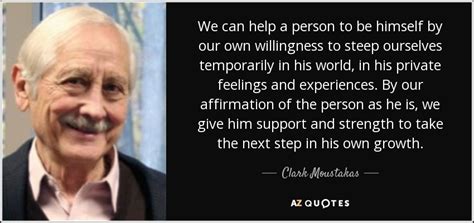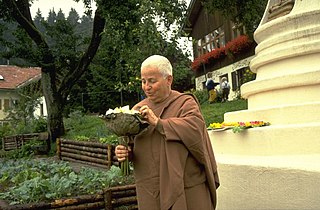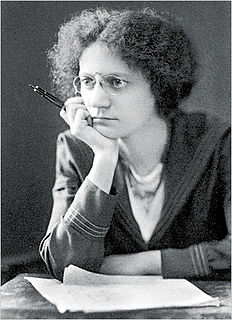A Quote by Erich Fromm
We have faith in the potentialities of others, of ourselves, and of mankind because, and only to the degree to which, we have experienced the growth of our own potentialities, the reality of growth in ourselves, the strength of our own power of reason and love.
Related Quotes
Education is identical with helping the child realize his potentialities. The opposite of education is manipulation, which is based on the absence of faith in the growth of potentialities and the connection that a child will be right only if the adults put into him what is desirable and suppress what seems to be undesirable.
In order to find God in ourselves, we must stop looking at ourselves, stop checking and verifying ourselves in the mirror of our own futility, and be content to be in Him and to do whatever He wills, according to our limitations, judging our acts not in the light of our own illusions, but in the light of His reality which is all around us in the things and people we live with.
The process of growth is, it seems, the art of falling down. Growth is measured by the gentleness and awareness with which we once again pick ourselves up, the lightness with which we dust ourselves off, the openness with which we continue and take the next unknown step, beyond our edge, beyond our holding, into the remarkable mystery of being.
In pursuing personal growth, there are issues where we can advance just so far by ourselves. At some point, our continued progress and improvement can only come about through relationships with others. Romantic love is an intense and intimate exposure to another person; if we can be who we want to be, even in that context, then our spiritual growth is exponentially expanded.
Pleasure cannot be shared; like Pain, it can only be experienced or inflicted, and when we give Pleasure to our Lovers or bestow Charity upon the Needy, we do so, not to gratify the object of our Benevolence, but only ourselves. For the Truth is that we are kind for the same reason as we are cruel, in order that we may enhance the sense of our own Power.
We could become quite satisfied with ourselves because we are sitting in meditation and are endeavoring to practice the spiritual path. Such satisfaction with ourselves is not the same as contentment. Contentment is necessary, self-satisfaction is detrimental. To be content has to include knowing we are in the right place at the right time to facilitate our own growth. But to be self-satisfied means that we no longer realize the need for growth. All these aspects are important parts of our commitment and makes us into one whole being with a one-pointed direction.
But how can we love someone if we don't like him? Easy-we do it to ourselves all the time. We don't always have tender, comfortable feelings about ourselves; sometimes we feel foolish, stupid, asinine, or wicked. But we always love ourselves: we always seek our own good. Indeed, we feel dislike toward ourselves, we berate ourselves, precisely because we love ourselves; because we care about our good, we are impatient with our bad.
We are not born all at once, but by bits. The body first, and the spirit later; and the birth and growth of the spirit, in those who are attentive to their own inner life, are slow and exceedingly painful. Our mothers are racked with the pains of our physical birth; we ourselves suffer the longer pains of our spiritual growth.




































